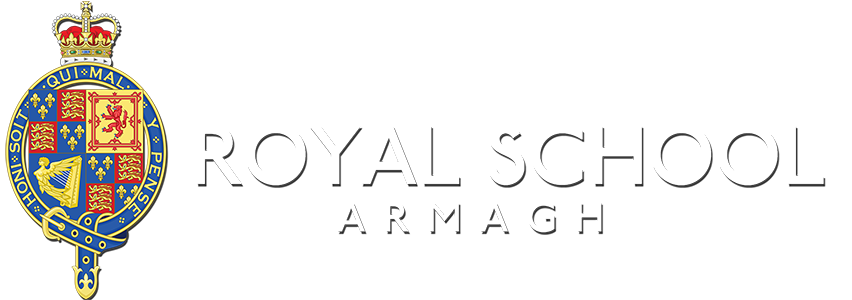CCF – Combined Cadet Force

The Combined Cadet Force (CCF) is a national youth organisation. There are 5 schools in Northern Ireland with CCF Units. The Royal School Contingent was founded in 1916 as part of the First Cadet Battalion of the Royal Irish Fusiliers and in 2016 celebrates its centenary. There are currently around 100 cadets in the CCF contingent in the Royal School (RAF and Army section).
“Royal School Armagh Combined Cadet Force aims to provide a disciplined organisation to enable students to realise their potential to become a leader. The Contingent aims to promote qualities of responsibility, self-reliance, resourcefulness, endurance and perseverance by providing dynamic and arduous training programmes.”
All pupils (from Yr9 upwards) are eligible to join the Royal School CCF contingent. This activity takes place each Tuesday afternoon. Pupils can elect to join one of two services – the Army or the Royal Air Force. The majority of the CCF Officers are members of staff, although this is not always the case. During the year there are many CCF camps which cadets can attend. All cadets attend camps at operational bases. There are many opportunities for cadets: shooting, flying both in powered aircraft and in gliders. Some cadets are able to fly solo or take control of twin piloted aircraft. In overseas expeditions the Contingent encourages and supports cadets who aspire to join expeditions in distant lands – Canada, Lesotho, Peru, Bavaria, Kwazulu-Natal – as an avenue to self-development, especially through outreach to help the people they meet. For example, the Rocky Mountain Challenge, on exchange with the Royal Canadian Army Cadets, is an outstanding opportunity– six weeks in the Rockies with a party of British and Canadian cadets, speaking both English and French, up mountains, across glaciers, down raging rivers.
The military world remains a bastion of good manners, and life in the Contingent hones the cadet’s social skills. Cadets must learn to interact effectively with cadets from other schools and other cadet forces. The successful care for the concerns of others becomes the solid foundation of the cadet’s own self-respect. Therefore, in many ways the cadets in the CCF develop qualities such as leadership, self-reliance, teamwork and good citizenship. The simple starting-point is smart turn-out and bearing in uniform, the practical and visible expression of respect for the name and the badge: then courtesy, in having the grace to acknowledge effort made on their behalf; to take none for granted; to accord proper and measured respect to all, with no excess of awe for the great and the good. A secondary and not insignificant aim is to foster and engender an interest in the role of the Armed Services. All of this is achieved by means of a combination of military type training and adventurous training.

Apart from camps there is a range of other courses which cadets can attend. These include leadership courses and adventurous training courses. Cadets can enhance their formal educational record through their CCF training. In completing their Army Proficiency Certificate training, the cadets cover 80% of the syllabus for the BTEC in Public Service, which is the equivalent of four GCSE passes.
What becomes evident is that, while the Cadet Training Syllabus covers mainly military skills, those skills are not simply an end in themselves. They enable the Contingent to set all its cadets on a path of training in management. Over the years of cadet service, the Contingent introduces its members to the essence of management training, progressive from operational to managerial to strategic, and a sound preparation for the professional and executive roles that so many will one day undertake.
































